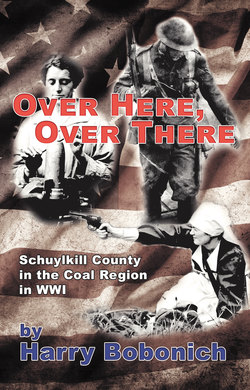Читать книгу Over Here and Over There - Harry Bobonich - Страница 15
На сайте Литреса книга снята с продажи.
The Home Front: 1914
ОглавлениеThis brief summary describes what was going on at the home front and how the war was affecting us after five months of fighting in Europe. When the war started in Europe in 1914, America responded with a mixture of surprise, caution and empathy. Most Americans felt that we should not get involved in the conflict. The public felt that it was a far-off war—an ocean away—and that it was Europe’s problem. In a nutshell, America did not have an appetite for war.
President Wilson’s position was also clear, he was determined to keep the United States out of the conflict. He proposed an even-handed approach toward the nations engaged in the war. The United States at the time was also immersed in its own internal struggles such as: improving the economy; dealing with labor unrest and the reform of labor practices; curbing the power of monopolies and addressing needs of the large number of recent immigrants.
Women activists like Jane Addams and Emma Goldman began protesting against militarism and the high death rates in the war in Europe. Addams, in particular, was also a well known, social worker and a leader in women’s suffrage and world peace. She said, “True peace is not merely the absence of war, it is the presence of justice.”
Women Activists and Peace Parade 1914
While many Americans sympathized with the Triple Entente, especially after Germany invaded Belgium; a significant number of minorities were pro-German and not supportive of England, France and Russia.
When the British initiated their blockade of Germany in 1914, it was the beginning of a long period of suffering for the German people. Meanwhile, the American economy, which had been in a recession had fallen further into an economic downturn since our trade with Europe then plummeted, especially our exports of cotton. As a result our recovery depended on Britain’s support for trade since they controlled the world’s maritime economy.
At that time, the entire south and many northern cities had Jim Crow laws that discriminated against black Americans. For decades, the appalling laws became uncompromising and permeated all aspects of public life, including railroads, hotels, restaurants, hospitals, living quarters and also cemeteries.
